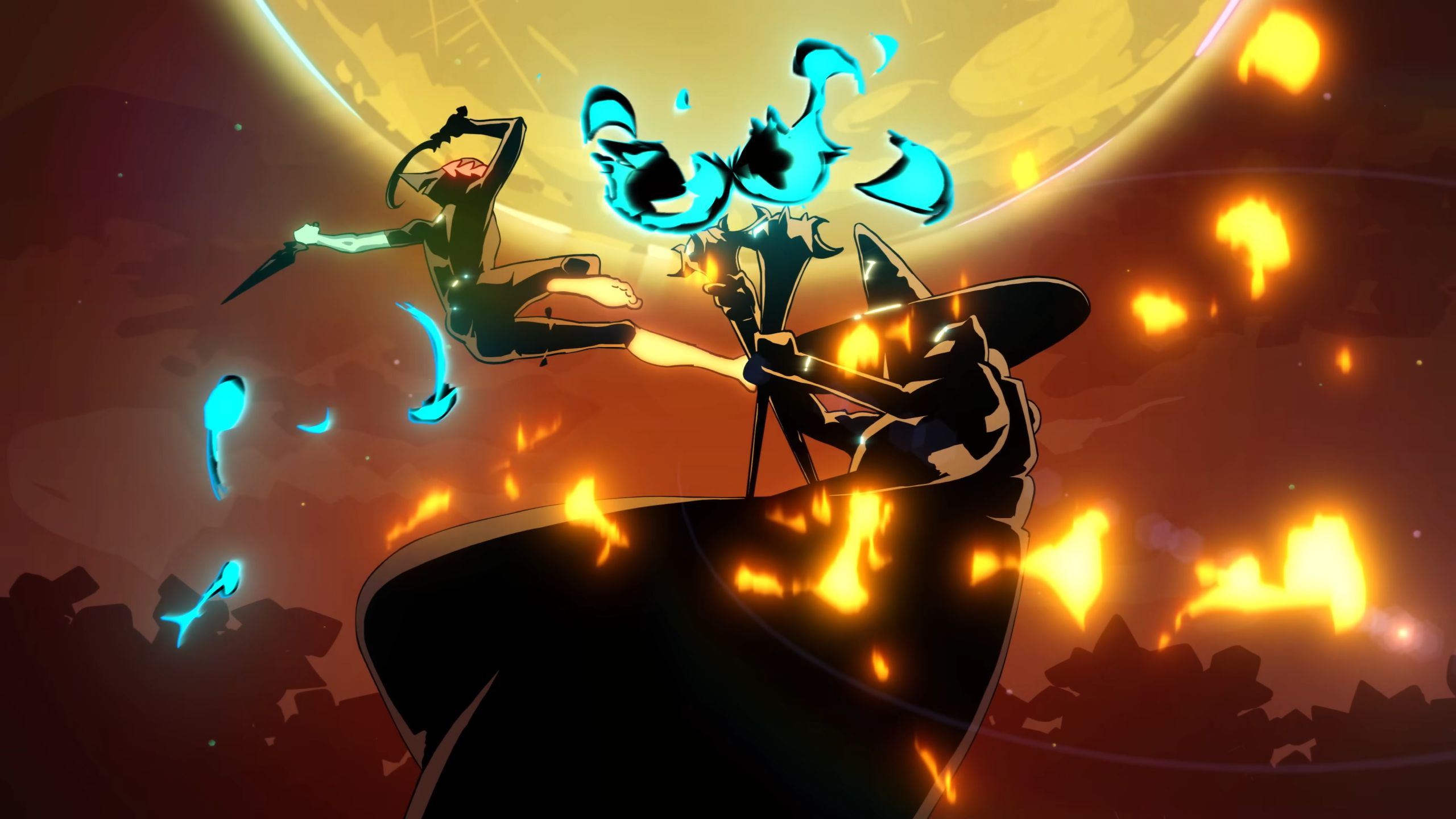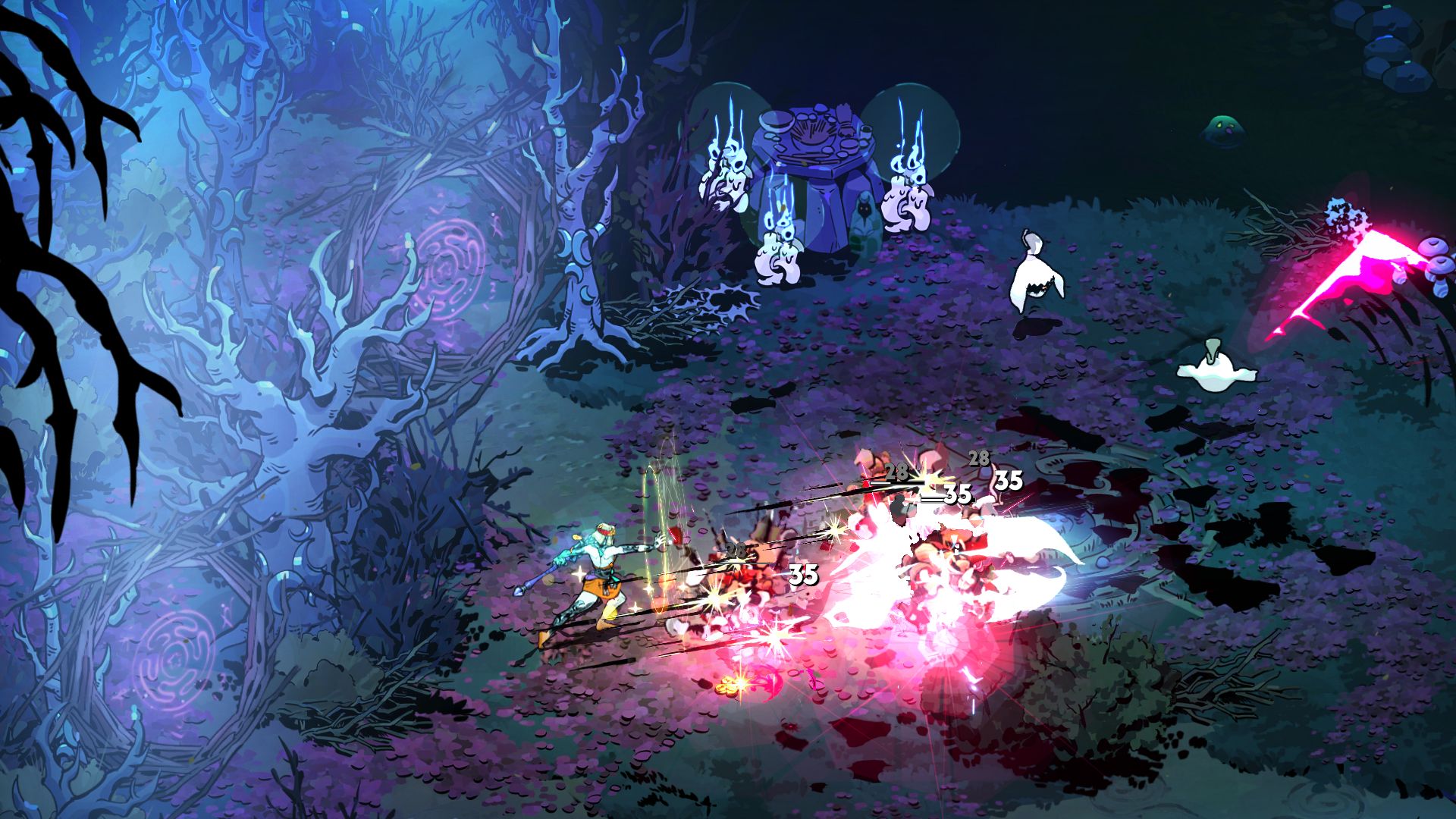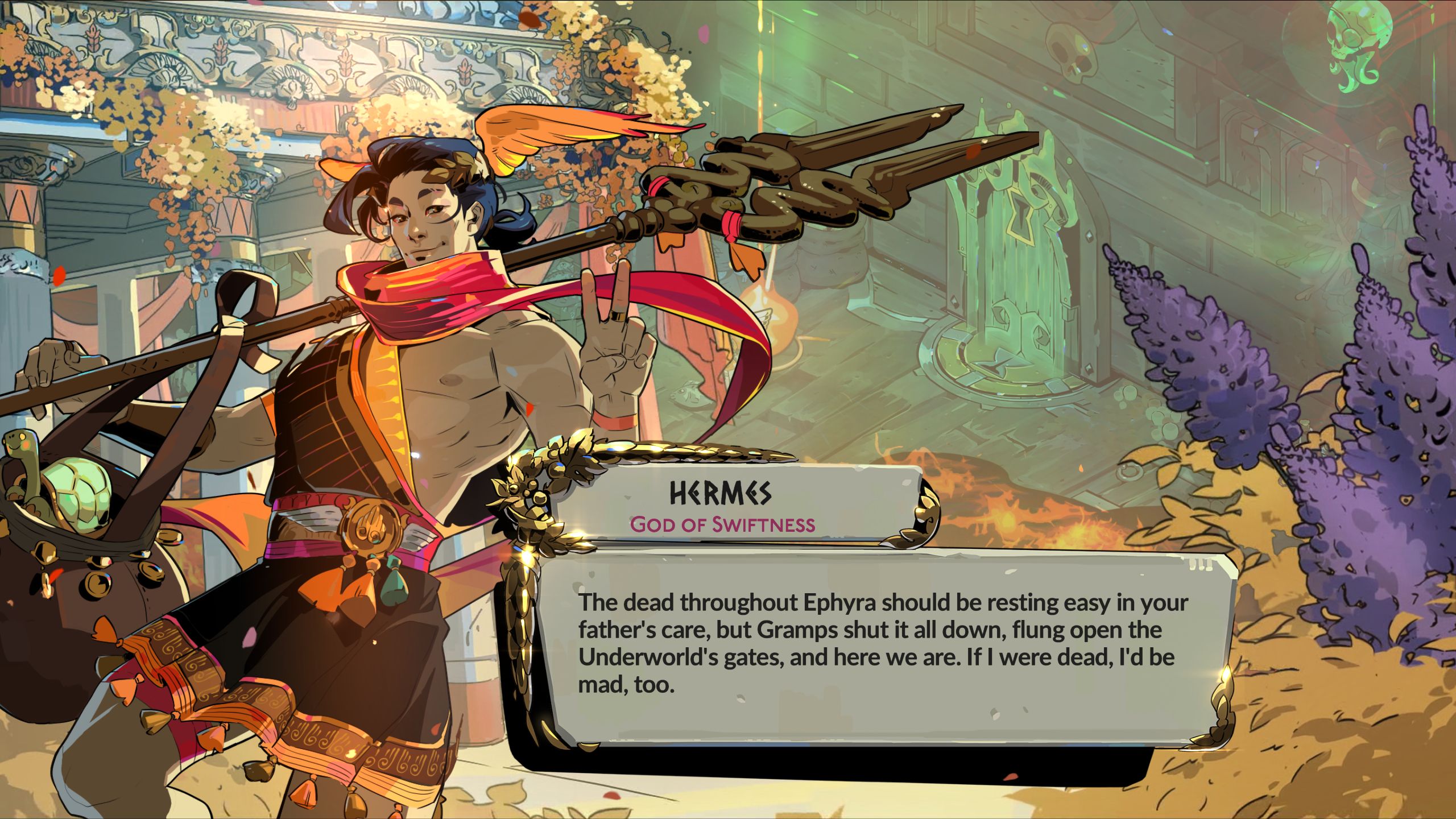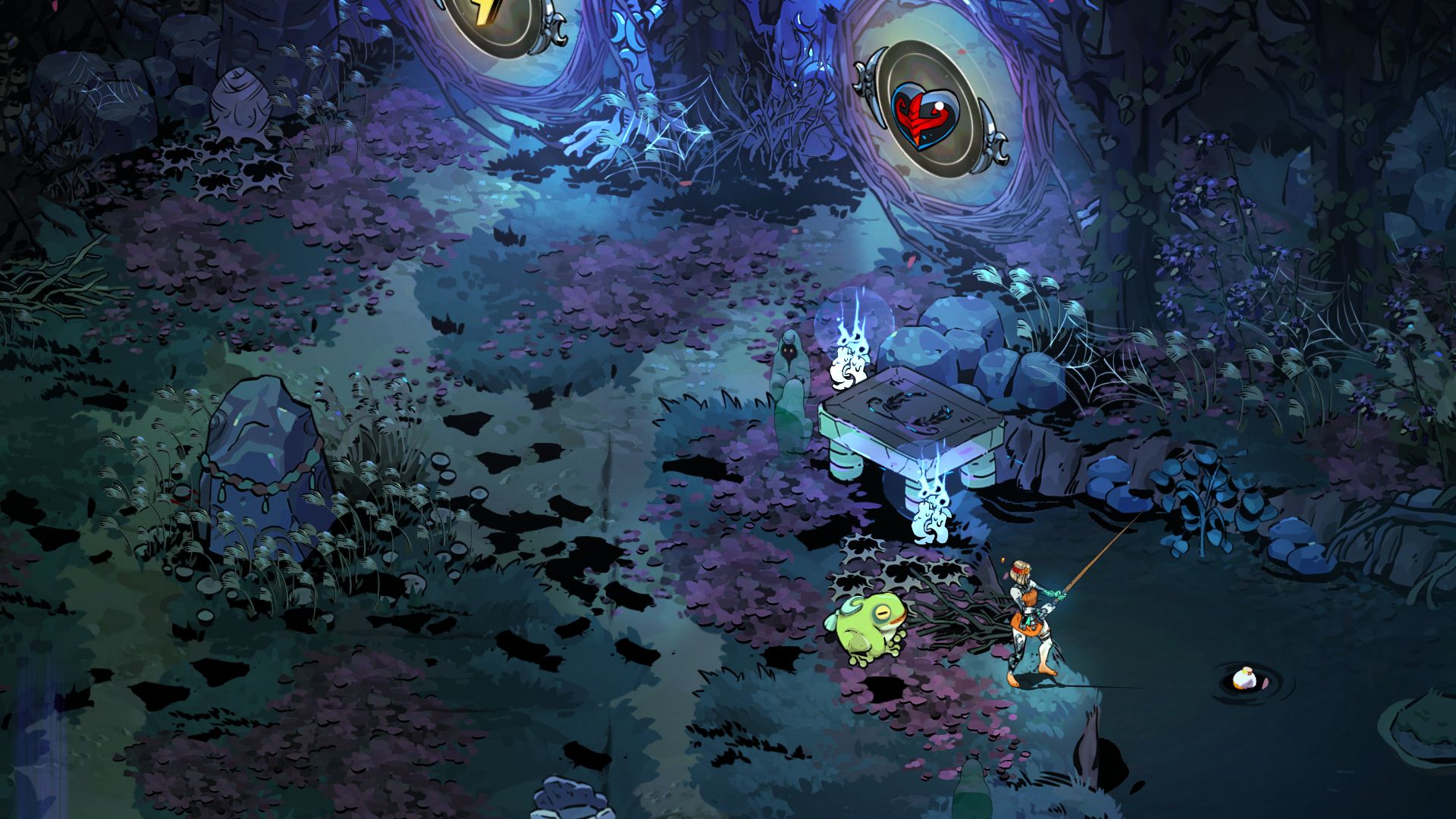Hades 2's creative director says, 'We expect to be in early access at least through the end of this year'
"In the short run, we plan to deploy at least a couple of relatively small patches to improve parts of the game where we can think of short-term improvements," Greg Kasavin says.

Hades 2 feels kind of like the original Hades seen through a mirror, darkly. You liked killing your dad? Get ready to kill your granddad next, only this time you'll be descending into the underworld rather than escaping up through it. The god who oversees the hub you return to between runs will now be the first boss rather than the last. Instead of trying to kill Hades, you'll be trying to save him. And instead of playing his son, you'll be playing his daughter. That daughter, Melinoë, has heterochromia just like her brother, the first game's protagonist Zagreus, only her eye colors are flipped—another mirroring.
Even the way she controls is a complementary reversal of her brother, favoring range over close quarters and careful positioning over frantic dashing. "Melinoë's upbringing is very different from that of Zagreus, as she's trained extensively as a witch, sorceress, necromancer, and assassin," Greg Kasavin, creative director on Hades 2, explains. "Where Zagreus is prone to impulsiveness, Melinoë can be more calculating, even ruthless. Her moveset is designed to reflect that, and we want for players to navigate the various challenges of Hades 2 from her point of view. So when it comes to battle, if Zagreus broadly encapsulates fighter/barbarian-style archetypes, then Melinoë broadly encapsulates caster/assassin-style archetypes, capable of powerful screen-clearing abilities that reward the player for using them at just the right times."

The specifics of how Melinoë plays were arrived at over several years of iteration, and are still being refined in early access with the first patch tweaking her dash and sprint. But, Kasavin says, "the focus on Melinoë and her witchcraft was there from the start. In developing our first-ever sequel, we had to think carefully about what we felt truly defined a Hades game. One such factor is for the game to have immediate, responsive action players can dive right into quickly and intuitively. At the same time, we want for players to experience a strong sense of discovery, even if they've played the original game extensively. Melinoë felt like the key to achieving this, as well as to another vital aspect of Hades: for the story to revolve around the big dysfunctional family that is the Olympian gods, from the Underworld's point of view."
That sense of discovery is one of the things I love about Hades 2. There are so many little details to spot. That sword Nemesis poses with? It looks exactly like the Stygian Blade Zagreus wielded in the first Hades after earning the Aspect of Nemesis upgrade. Hermes carries a happy tortoise in his satchel not just because it's funny for a speedster to be carrying a famously slow animal, but because tortoises are associated with Hermes in Greek mythology (he invented the lyre by stringing a tortoise shell). The bosses have unique dialogue if you stop to gather resources while they're trying to kill you, and Hecate responds to various changes in your loadout. Even in its early access state, there's a lot to find.
"We were just talking the other day about how our astute players quickly seem to find even the smallest details into this game," Kasavin says, "which is a wonderful feeling. I was impressed that players already discovered details such as how Heracles might grumble if you accept a Boon of Hera while he's present, or how Hecate might remark if her Twilight Curse hex is deflected by Melinoë's animal familiar. These are intentionally very situational little moments that only a small percentage of players may experience even if they play the game for a long time. Our thinking is, if we pack the game with stuff like this, then just about every player will experience some of it, even if hardly anyone will see it all."

That reactivity will deepen as Hades 2 is updated. Between smaller patches the first game received periodic Major Updates with themes like "Chaos" (which added the character of Primordial Chaos, three new enemies, the hub's merchant, and the Pact of Punishment difficulty modifiers) and "Beefy" (which gave us the entire Elysium level, all its new enemies, and its beefy-boy bosses, Theseus and the Minotaur). Expect Hades 2's updates to follow a similar pattern, subject to change, Kasavin says.
"In the short run, we plan to deploy at least a couple of relatively small patches to improve parts of the game where we can think of short-term improvements that alleviate issues we've heard from some players, while hopefully making the game even better for those already pleased with it. Then, we'll focus on our first Major Update, which will take us several months during which the game won't be updated. This Major Update will include new features, locations, foes, and other content. Then we'll patch that a few times to shore up any issues, and repeat this broader process... until we consider the game complete! We expect to be in early access at least through the end of this year."
The biggest gaming news, reviews and hardware deals
Keep up to date with the most important stories and the best deals, as picked by the PC Gamer team.

There's a huge amount of Hades 2 to play already, with more stuff in it than the first game had at launch. Yet there are some clear gaps. Three gods are missing—Ares, Athena, and Dionysus—as is a certain area where they might reasonably be expected to show up. The cosmetic upgrades we could apply to the first game's hub, spending gems to personalize everything down to the color of the curtains, are absent as yet. And there's a conspicuous space for an additional weapon right there in the training area. But Kasavin isn't saying which we should expect first.
"We have an idea for the theme of our first Major Update," he says, "though don't want to give it away just yet! That said, if you play the game deeply enough, you'll find clues as to where things are going."

Jody's first computer was a Commodore 64, so he remembers having to use a code wheel to play Pool of Radiance. A former music journalist who interviewed everyone from Giorgio Moroder to Trent Reznor, Jody also co-hosted Australia's first radio show about videogames, Zed Games. He's written for Rock Paper Shotgun, The Big Issue, GamesRadar, Zam, Glixel, Five Out of Ten Magazine, and Playboy.com, whose cheques with the bunny logo made for fun conversations at the bank. Jody's first article for PC Gamer was about the audio of Alien Isolation, published in 2015, and since then he's written about why Silent Hill belongs on PC, why Recettear: An Item Shop's Tale is the best fantasy shopkeeper tycoon game, and how weird Lost Ark can get. Jody edited PC Gamer Indie from 2017 to 2018, and he eventually lived up to his promise to play every Warhammer videogame.

